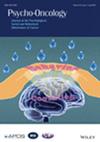癌症筛查预先通知的实施和机制:范围审查
IF 3.3
2区 医学
Q2 ONCOLOGY
引用次数: 0
摘要
方法在六个电子数据库(APA PsycINFO、CINAHL、Cochrane Library、Embase、PubMed、Web of Science)中进行了与预先通知和癌症筛查相关的搜索,并对结果进行了资格筛选。提取了研究特征、预先通知的特点(癌症类型、格式、发送时间和内容)以及通知对癌症筛查参与的影响。结果本综述共收录 32 篇文章,报告了 33 个独特的预先通知。其中,79% 是通过邮寄方式发送的,79% 是在肠癌筛查前分发的,大多数是在筛查开始前两周发送的。我们获得了 22 份完整版的预先通知,用于内容分析。通知内容包括癌症风险、筛查的益处、参加筛查的障碍、社会对癌症筛查的认可以及整个筛查过程中的注意事项。在对 19 份通知的效果进行统计检测后发现,68% 的通知能提高筛查率(0.7%-16%)。尽管在癌症类型上存在一些差异,但通知的形式、发送时间或内容在效果上并无不同。结论未来的研究应探索通过其他形式和其他筛查环境提前通知的效果,并将其对筛查参与效果的干预因素和个人因素区分开来。本文章由计算机程序翻译,如有差异,请以英文原文为准。
The implementation and mechanisms of advance notification for cancer screening: A scoping review
ObjectiveTo describe and synthesise information on the content and delivery of advance notifications (information about cancer screening delivered prior to invitation) used to increase cancer screening participation and to understand the mechanisms that may underlie their effectiveness.MethodsSearches related to advance notification and cancer screening were conducted in six electronic databases (APA PsycINFO, CINAHL, Cochrane Library, Embase, PubMed, Web of Science) and results were screened for eligibility. Study characteristics, features of the advance notifications (cancer type, format, delivery time, and content), and the effect of the notifications on cancer screening participation were extracted. Features were summarised and compared across effective versus ineffective notifications.ResultsThirty‐two articles were included in this review, reporting on 33 unique advance notifications. Of these, 79% were sent via postal mail, 79% were distributed prior to bowel cancer screening, and most were sent 2 weeks before the screening offer. Twenty‐two full versions of the advance notifications were obtained for content analysis. Notifications included information about cancer risk, the benefits of screening, barriers to participation, social endorsement of cancer screening, and what to expect throughout the screening process. Of the 19 notifications whose effect was tested statistically, 68% were found to increase screening (by 0.7%–16%). Effectiveness did not differ according to the format, delivery time, or content within the notification, although some differences in cancer type were observed.ConclusionFuture research should explore the effectiveness of advance notification via alternative formats and for other screening contexts and disentangle the intervention‐ and person‐level factors driving its effect on screening participation.
求助全文
通过发布文献求助,成功后即可免费获取论文全文。
去求助
来源期刊

Psycho‐Oncology
医学-心理学
CiteScore
6.30
自引率
8.30%
发文量
220
审稿时长
3-8 weeks
期刊介绍:
Psycho-Oncology is concerned with the psychological, social, behavioral, and ethical aspects of cancer. This subspeciality addresses the two major psychological dimensions of cancer: the psychological responses of patients to cancer at all stages of the disease, and that of their families and caretakers; and the psychological, behavioral and social factors that may influence the disease process. Psycho-oncology is an area of multi-disciplinary interest and has boundaries with the major specialities in oncology: the clinical disciplines (surgery, medicine, pediatrics, radiotherapy), epidemiology, immunology, endocrinology, biology, pathology, bioethics, palliative care, rehabilitation medicine, clinical trials research and decision making, as well as psychiatry and psychology.
This international journal is published twelve times a year and will consider contributions to research of clinical and theoretical interest. Topics covered are wide-ranging and relate to the psychosocial aspects of cancer and AIDS-related tumors, including: epidemiology, quality of life, palliative and supportive care, psychiatry, psychology, sociology, social work, nursing and educational issues.
Special reviews are offered from time to time. There is a section reviewing recently published books. A society news section is available for the dissemination of information relating to meetings, conferences and other society-related topics. Summary proceedings of important national and international symposia falling within the aims of the journal are presented.
 求助内容:
求助内容: 应助结果提醒方式:
应助结果提醒方式:


